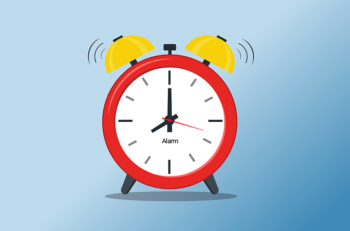English Spanish Parallel Texts – Reflexive Verbs (Part 1) Posted by Laura & Adam on Mar 22, 2022 in Language, Learning, Spanish Grammar, Spanish Vocabulary
In this lesson of our English Spanish Parallel Texts course and we are going to practice using Spanish Reflexive Verbs. Start by reading the text in Spanish below. The English translation is provided later but please try not to look at it until you have read the Spanish version various times and tried your best to understand it.
There may be some words and phrases in the text that you are unfamiliar with, but you should be aiming to capture the main essence of what is happening. There will always be words and phrases popping up in real-life situations that you have never heard before, so it is important never to get too distracted by details.
If you want to investigate some of the words you don’t know with a dictionary that would be great, please do, but do this after trying your best to understand with what you already have in your head.
Check out this video lesson with information relevant to this topic:
Spanish Text
Carlota: ¿Cómo puedes estar siempre tan arreglado?
Felipe: Gracias Carlota. No lo sé. Supongo que me gusta cuidarme y estar bien vestido.
Carlota: Yo soy un desastre. Mira mi pelo. ¡Y mis calcetines! Tengo puestos uno rosa y uno negro.
Felipe: No pasa nada Carlota. ¿A qué hora te levantas por la mañana? Igual es porque no tienes suficiente tiempo y te preparas con mucha prisa.
Carlota: Tienes razón. Muchos días olvido poner la alarma. Y los días que recuerdo ponerla, la quito por la mañana de todas formas y sigo durmiendo.
Felipe: La clave es tener mucho tiempo para despertarse poco a poco. Sin prisa y sin estrés.
Carlota: ¿A qué hora te despiertas por la mañana Felipe?
Felipe: Siempre a las seis y media. Normalmente me levanto cinco minutos después pero a veces me quedo quince minutos leyendo un libro. Luego me ducho, me visto, y me peino. A las siete, más o menos, desayuno tranquilamente viendo la televisión o leyendo.
Carlota: ¿Y nunca estás pegado a las sábanas? Cuando me despierto estoy tan a gusto en mi cama, y tan dormida, que no puedo levantarme.
Felipe: Estoy atento a que tengo que trabajar y prefiero evitar el estrés. Cuando tengo tiempo de sobra nunca estoy estresado.
Carlota: Sí. Tiene sentido. ¿Pero a qué hora vas a trabajar?
Felipe: Empiezo a las nueve. Salgo de casa a las ocho.
Carlota: Entonces tienes una hora y media por la mañana despierto.
Felipe: Sí, eso es. A veces más.
Carlota: Yo prefiero usar este tiempo en mi cama. En diez minutos puedo prepararme y me tomo mi café de camino al trabajo. ¡Qué más dan mis calcetines y mi pelo!
English Text
Carlota: How can you always be so well presented?
Felipe: Thanks Carlota. I don’t know. I guess I like to take care of myself and be well dressed.
Carlota: I am a disaster. Look at my hair. And my socks! I have one pink one and one black one.
Felipe: It doesn’t matter Carlota. What time do you get up in the morning? Maybe it’s because you don’t have enough time and you get ready in a hurry.
Carlota: You’re right. Many days I forget to set the alarm. And the days I remember to set it, I turn it off in the morning anyway and continue sleeping.
Felipe: The key is to have a lot of time to wake up little by little. No rush and no stress.
Carlota: What time do you wake up in the morning Felipe?
Felipe: Always at six thirty. Normally I get up five minutes later but sometimes I stay fifteen minutes reading a book. Then I shower, get dressed, and comb my hair. At seven o’clock, more or less, I have breakfast calmly watching television or reading.
Carlota: And you never find it difficult getting out of bed? When I wake up I’m so comfortable in my bed and so sleepy that I can’t get up.
Felipe: I am aware that I have to work and I prefer to avoid stress. When I have time to spare I’m never stressed.
Carlota: Yes. It makes sense. But what time do you go to work?
Felipe: I start at nine. I leave the house at eight.
Carlota: Then you have an hour and a half in the morning awake.
Felipe: Yes, that’s right. Sometimes more.
Carlota: I prefer to use this time in my bed. In ten minutes I can prepare myself and I have my coffee on my way to work. Who cares about my socks and my hair!
So, how did you get on? How much did you understand of the original text before checking the translation? Please let me know in the comments section below…
Don’t worry if you didn’t understand that much, practice makes perfect! Be patient and keep reading, hearing, writing, and speaking Spanish. See you next time!

Build vocabulary, practice pronunciation, and more with Transparent Language Online. Available anytime, anywhere, on any device.





Comments:
Elizabeth:
There were a few words I didn’t recognize however I was able to understand 100% of what was happening in the text scenario.
Laura & Adam:
@Elizabeth ¡¡Muy bien Elizabeth!!